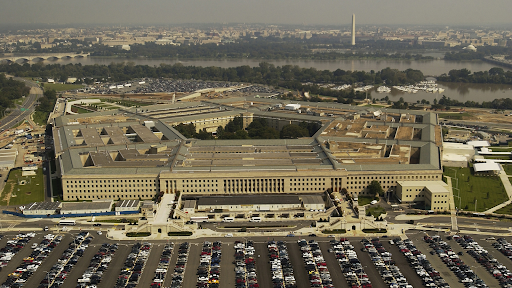Women's Role in Security and Peace: A Look at Recent Developments in the Women, Peace and Security Agenda

Recent statements concerning Women, Peace and Security (WPS) programs in the US government have sparked debates across political lines. While the Trump administration codified these efforts into law in 2017 through the US WPS Act, recent statements by key officials have drawn scrutiny.
Administration Adjusts Defense and Diplomatic Priorities
In late April 2025, Defense Secretary Pete Hegseth announced via social media the termination of the Department of Defense's Women, Peace and Security program.
Both Democratic and Republican leaders responded to this social media post. Senator Shelley Moore Capito (R-WV), a co-sponsor of the original WPS Act legislation, noted its origins under the first Trump administration, while Senator Jeanne Shaheen (D-NH) and Representative Lois Frankel (D-FL) expressed strong concerns about Secretary Hegseth's statement. In a statement, Representative Frankel, the Co-Chair of the bipartisan Women, Peace and Security Congressional Caucus whose establishment was spearheaded in 2020 by Our Secure Future (OSF), emphasized the risks of dismantling structures built to institutionalize WPS principles.
"WPS reflects what our military leaders and national security experts have long recognized: including women in peace and security efforts gives us a strategic advantage. When women are at the table—whether in preventing conflict, negotiating peace, or leading recovery—peace agreements are more durable, communities are more resilient, and missions are more successful. This matters especially in conflict zones, where rape is used as a weapon of war, and women are often left to protect and provide for their families," says Representative Frankel.
Internal documents from the US Department of Defense Joint Staff, reviewed by media outlets, offered alternative perspectives on maintaining military engagement with the program. Our Secure Future also produced a brief outlining the Trump and Biden Administrations' approaches to implementing the Women, Peace and Security agenda.
Parallel changes emerged at the State Department, where Secretary of State Marco Rubio announced an organizational restructuring including the elimination of the Office of Global Women's Issues. This move contrasted with Rubio's earlier praise for the US WPS Act at the International Women of Courage Awards in March 2025, where he highlighted its global significance.
Enhancing Operational Effectiveness Through WPS
The WPS framework stands as a cornerstone of modern security strategy, enhancing both tactical effectiveness and long-term conflict resolution. By institutionalizing women's participation in peacebuilding and defense operations, WPS contributes to sustainable security solutions. Over 100 countries have adopted National Action Plans (NAPs) to implement WPS principles, demonstrating its global utility as a mechanism for creating more peaceful and secure societies.
WPS principles, when embedded in military operations, fill critical capability gaps. One example is the deployment of all-female Cultural Support Teams in Afghanistan, which enabled access to local female populations for intelligence-gathering—individuals often culturally inaccessible to male personnel. These teams became force multipliers by building trust, gathering actionable insights, and contributing to counterinsurgency efforts. This success stemmed not from ideology, but from strategic necessity, grounded in operational realities.
WPS-informed training equips military advisors to adopt population-centric strategies, improving engagement with communities, reducing civilian casualties, and limiting insurgent recruitment. These approaches highlight that the inclusion of women is not ancillary to security—it's central to mission success.
Legislative Codification: A Blueprint for Stability
Beyond the U.S. context, WPS serves as a blueprint for enduring peace agreements. Data shows that peace accords inclusive of women are significantly more durable. For example, Colombia's 2019 WPS National Action Plan fostered more inclusive post-conflict reconciliation, resulting in deeper community trust and lower recidivism among former combatants.
Global adoption of WPS frameworks reveals that cultural legitimacy and localized adaptation are vital. Programs succeed when they engage men and boys as allies and align with existing social structures. In practice, Cultural Support Teams exemplified this integrated approach, leveraging strengths while respecting local norms and strategic priorities.
Recalibrating WPS for Measurable Impact
As the WPS framework is implemented across diverse geopolitical contexts, its success depends on maintaining a clear focus on strategic outcomes and resisting shifts that dilute its core objectives. Effective programs must prioritize women's distinct contributions to conflict resolution and security.
The United States remains the only country in the world to have enacted a law solely dedicated to Women, Peace and Security. This unique legislative commitment positions the U.S. as a global leader. To sustain and strengthen its influence, the U.S. must prioritize continued investment in the WPS agenda. Doing so will not only reinforce its national security goals but also support broader global efforts to build durable peace and resilient societies.
© Copyright IBTimes 2024. All rights reserved.





















